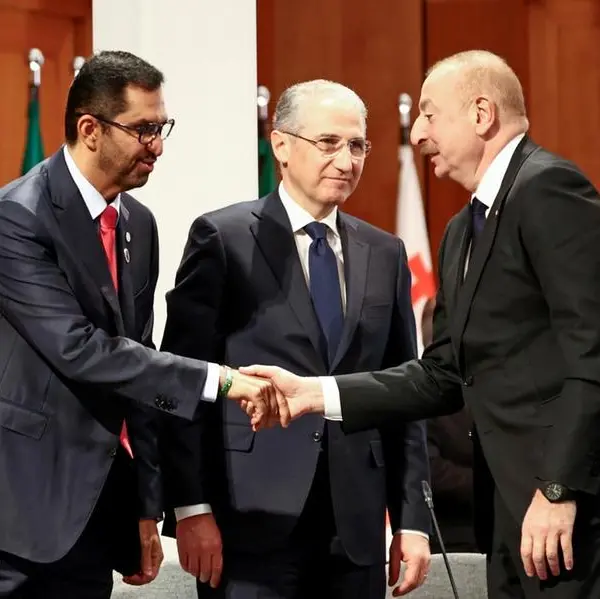Sharjah - Since 2012, experts in the field of government communication have been gathering every year in Sharjah, UAE, to discuss best practices and global success stories at the International Government Communication Forum (IGCF).
Looking at how government entities can optimise communication strategies in their dealings with not just government institutions in the UAE and the region, but also with members of community, this Sharjah forum has offered a prolific platform for the exchange of regional and international expertise on increasing efficiency to address current and future challenges.
The Sharjah Government Communication Award (SGCA) was launched parallelly in 2012, through which the emirate has been successfully enabling government communication entities in the UAE and the Arab region to enhance their expertise in serving and developing their societies.
Each edition of the IGCF has highlighted new topics and challenges, strengthening the UAE’s status as a frontrunner in spotting latest trends and disseminating information crucial to bettering government communication strategies in a world facing rapid technological transformation.
Government communication ecosystem
The Forum has seen a series of significant achievements over the last seven years with the establishment of the International Government Communication Centre (IGCC), the IGCF Academic Committee, and SGCA. It is a reliable reference for an array of international communication case studies. Besides, new training programmes have been launched for several government communication units in Sharjah. The forum has also opened new doors for media and communication students in varied specialisations by encouraging their integration into the sector.
IGCF’s pursuits are all in line with the UAE Vision 2021, and seek to support those goals of Centennial 2071, which are focused on building a knowledge-based society, and equipping the youth with the knowledge and skillsets required to successfully lead the UAE’s developmental efforts in the media and communications sectors.
Correcting misconceptions
“International Government Communication Forum aims to improve government performance by offering insight into how the role of government communications can be maximised, and demonstrating its role as a valuable strategic tool."
- Quote from a statement of Sheikh Sultan bin Ahmed Al Qasimi, Chairman of the Sharjah Media Council (SMC), prior to the launch of first Sharjah Government Communication Forum in 2012
The inaugural edition of the IGCF; then known as the Sharjah Government Communication Forum, brought together 600 participants and guests including media figures, local and international politicians. It focused on correcting misconceptions about government communications mainly held by those working in the sector. The media crisis management and the future of digital media in government sector were also discussed during the inaugural edition of the Forum.
The 2012 edition’s guest of honour was Tun Dato' Seri Abdullah Badawi, former prime minister of Malaysia.
Effective communication: A unified messaging imperative
The first edition’s success prompted the organisers to change the venue to the Expo Centre Sharjah in 2013, to accommodate the 300% increase in participants, in addition to more than 40 speakers and 500 guests from the Arab and international politics and media.
Held under the theme ‘Effective Communication… Unified Message’, the Forum highlighted the need to improve the rules and methods of government communication to engage masses more effectively. The need to embrace digital transformations and social media was also highlighted.
Among the most prominent guests at the GCF 2013 were Kofi Annan, former Secretary-General of the United Nations; Amr Moussa, former Secretary-General of the Arab League; Andrew Young, politician and human rights activist.
Diverse roles, mutual interest
By the third edition, the Forum had established its international character and calibre, and took on its current name – International Government Communication Forum. In 2014, IGCF welcomed Mikhail Gorbachev, the last president of former Soviet Union; Felipe Calderon, former president of Mexico; and James Wolfensohn, World Bank president.
The event that attracted 1,800 guests discussed the positive impact of government communication on the relationship between governments and their audiences, and explored its role in improving national image as well as economic, social, and political future.
Result-oriented action
The fourth edition of the Forum shed light on the immediate actions necessary in making government communication mechanisms more transparent and approachable to ensure a better relationship between the government and public.
IGCF 2015 welcomed prominent world leaders and officials including General Michel Sleiman, former president of the Republic of Lebanon; Ellen Johnson-Sirleaf; former President of Liberia; Julia Gillard, prime minister of Australia; Jose Manuel Barroso, President of the European Commission (2004-14) and prime minister of Portugal (2002-4) and Lakhdar Brahimi, Special Advisor to UN Secretary General, among others.
Towards more progressive societies
The fifth edition of IGCF was in line with the directives of the His Highness Sheikh Dr Sultan bin Mohamed Al Qasimi, Supreme Council Member and Ruler of Sharjah, and delved further into the recommendations highlighted by IGCF 2015 on the importance of communication between people and governments.
The Forum focused on the important relationship between government communication and citizen welfare through a case study of regional and global examples of best practices.
Societal participation: Key to comprehensive development
The 2017 edition examined the public participation theme further, and looked into ways government communication can be utilised to achieve the UN Sustainable Development Goals (SDGs). Participation numbers crossed 2,500 in this edition, and saw the likes of Al Gore, vice president of the United States (1993-2001), and Azerbaijan’s deputy prime minister, Ali Ahmadov, in attendance.
Digital Millennium… Where To?
In the 2018 edition, the critical topic of how governments in the region and globally are overcoming challenges of digital disruptions, outlining communication priorities for specific departments, and updating operating models to incorporate best technologies with best practices.
The right behaviour for human development
The eighth edition, to be held on 20-21 March in Sharjah, will tackle the theme of ‘Behavioural Change towards Human Development’. The key role of government communication in supporting human capital development through promotion of healthy habits, elevating the status of education, building future skills, fostering behavioural practices dedicated to sustainability, and how governments can work together to encourage people to feel individually responsible for human development, are among the topics that will be discussed by world leaders and global experts.
-Ends-
© Press Release 2019Disclaimer: The contents of this press release was provided from an external third party provider. This website is not responsible for, and does not control, such external content. This content is provided on an “as is” and “as available” basis and has not been edited in any way. Neither this website nor our affiliates guarantee the accuracy of or endorse the views or opinions expressed in this press release.
The press release is provided for informational purposes only. The content does not provide tax, legal or investment advice or opinion regarding the suitability, value or profitability of any particular security, portfolio or investment strategy. Neither this website nor our affiliates shall be liable for any errors or inaccuracies in the content, or for any actions taken by you in reliance thereon. You expressly agree that your use of the information within this article is at your sole risk.
To the fullest extent permitted by applicable law, this website, its parent company, its subsidiaries, its affiliates and the respective shareholders, directors, officers, employees, agents, advertisers, content providers and licensors will not be liable (jointly or severally) to you for any direct, indirect, consequential, special, incidental, punitive or exemplary damages, including without limitation, lost profits, lost savings and lost revenues, whether in negligence, tort, contract or any other theory of liability, even if the parties have been advised of the possibility or could have foreseen any such damages.










